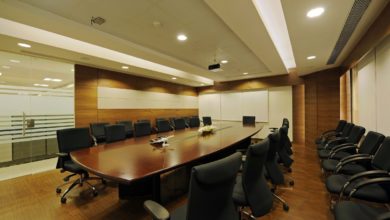
Published by The Nashville Business Journal
Our brains are amazing intelligence centers that can absorb an unlimited amount of information. So why not just download all we can?
Well, because no one is forcing us to improve ourselves. Status quo is always an option. We can listen to mind-numbing music and space out in front of the TV or we can read, network and go to school to enhance our knowledge. Personal growth has to be a conscious decision. That’s your learning agenda. You either have one or you don’t.
If you’ve made up your mind to become even more amazing, here are some tips for establishing a learning agenda.
Be honest. Start with a little self-analysis. In your limited spare time, how many hours do you spend in a zombie-like state watching sitcoms or other sometimes-entertaining-but-more-often-totally-worthless TV programs? Ask yourself exactly what you got out of all those hours. Likely your answer will be “nothing!” Find out where you’re honestly at before you develop a personal learning agenda.
Be open. Open your mind to learning all kinds of things. The broader your knowledge base is the more interesting you are to others. Likewise, the more you know the more you will be sought after for business meetings and social events. People we meet often fall into two categories: those who are interesting and you want to meet again, or those who a make you think “what a bore.” We all want to fall into the “really interesting” category.
Be specific. In the business world, your learning agenda is likely multifaceted, with initiatives in reading, networking, business conferences, and possibly classes or educational television programs. The goal in this realm is to build a learning agenda that is specific and measurable, meaning you gain knowledge crucial to your job and your growth potential in it.
Be regular. Whether it’s from an old-fashioned hardcopy or an e-reader, regular reading is the backbone of building a first-class knowledge base. The more you read the better you will read. Start by reading (or scanning) key trade journals, industry-specific magazines and at least one general business magazine (Forbes, Fortune or Business Week). Pay special attention to the offbeat material, which often contains the most innovative ideas.
Be book-ish. Reading books is the most time-consuming piece of a good learning agenda, but it’s also the most transformational. For example, one profound book—In Search of Excellence, a study of two dozen American companies that were consistently achieving outstanding performance—helped me see a more clear path for my own company. I really believe Tractor Supply Company would not be where it is today had I not read that book.
Be planful. It is easy to procrastinate and avoid the tough learning that will do us the most good. So make a plan and write it down. For example: In the next six months I will read three books that will help me be a better person and a better business leader. That’s one 300-page book every two months or 150 pages a month or five pages a day. Not sure where to start? Find a basic business strategy book (like Good to Great by Jim Collins), one on self improvement (try one about communication skills) and a general knowledge read like a biography or history book.



